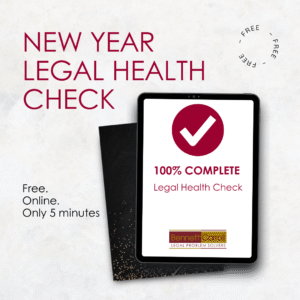What Every Agent Needs to Know Well Before 1 August 2025
Queensland is about to implement Australia’s most comprehensive property disclosure regime, fundamentally changing how residential property sales operate across the state. From August 1, 2025, the new statutory seller disclosure scheme under the Property Law Act 2023 will require sellers to provide extensive documentation to buyers before contracts are signed – and the implications for real estate agents are significant.
Notably, the regime applies to all contracts entered into on or after 1 August 2025, regardless of when the property was listed for sale. Some limited exceptions may apply.
The New Reality: No More “Buyer Beware”
The age-old caveat emptor (“buyer beware”) approach is being replaced with mandatory seller transparency. The new scheme will require sellers to provide a full suite of disclosure documents to prospective buyers before a contract is signed, positioning Queensland as having the country’s strictest property disclosure framework.
This represents the most significant change to Queensland conveyancing practice in decades, bringing the state in line with Victoria and NSW while actually exceeding their requirements in scope and detail.
What Must Be Disclosed: Checklist
Under the new regime, sellers must provide two key components before any contract can be signed:
1. Form 2 Seller Disclosure Statement
This document covers:
- Property and seller details including lot/plan descriptions and community title information
- Title details and encumbrances including easements, leases, and statutory rights
- Land use and planning including zoning, environmental notices, and heritage listings
- Buildings and structures including pool safety compliance and owner-builder work
- Rates and services including current charges and exemptions
- Community titles information where applicable
The official Form 2 is available from the Queensland Government Publications Portal and provides detailed guidance on completion requirements.
2. Prescribed Certificates
These include current title searches, planning certificates, zoning information, and relevant environmental or heritage notices.
These documents must be accurate and up to date at the time they are given to the buyer. The disclosure statement must be signed by the seller and can be signed electronically. While it is not mandatory for the buyer to sign the statement, it is best practice for them to do so to confirm receipt.
Critical Changes for Real Estate Agents
New Responsibilities and Risks
Real estate agents can prepare Form 2 disclosure statements, but only with written seller instructions and following strict protocols. However, as REIQ notes, agents cannot provide legal advice or interpret search results – a crucial limitation that increases the importance of legal involvement.
Contracts can no longer proceed without complete and accurate disclosures, and buyers now have clear rights to withdraw if that standard is not met. This means incomplete or inaccurate disclosures could result in:
- Contract terminations at any time before settlement
- Lost commissions and disrupted sales
- Potential liability for errors or omissions
- Damage to professional reputation
The Timing Challenge
All disclosure documents must be provided before the buyer signs the contract, creating new workflow pressures. Unlike current practice where some due diligence occurs during the post-signing contract period, everything must now be front-loaded to the pre-contract phase.
What’s NOT Covered: The Due Diligence Gap
Importantly, the disclosure regime doesn’t require sellers to reveal everything. The REIQ explains that the disclosure statement does not cover everything, including: flooding or natural hazard history, structural soundness or pest infestation, building or development approvals, asbestos presence, and utility connections. It also won’t cover the vast range of disputes that can arise between neighbours, or disputes between current and historical owners.
This creates an interesting dynamic where buyers receive extensive formal disclosures but must still conduct independent investigations for many practical concerns.
Why Legal Support is More Critical Than Ever
The complexity and legal consequences of the new regime make professional legal support essential for several reasons:
Compliance Complexity
The disclosure requirements are detailed and specific. The Seller Disclosure Scheme is complex, and compliance will demand a new standard of diligence. Given that errors in contracts not reviewed by legal professionals are already common, adding mandatory disclosure requirements significantly increases compliance risks.
Mandatory Legal Representation
The move to PEXA (Australia’s digital property settlement platform) has already made legal representation practically mandatory for title transfers. The solicitor’s role will only become more central with these reforms.
While historically, solicitors were not viewed as being important until a contract was already signed (which was always a logical fallacy, but nevertheless), a solicitor now becomes important long before a contract is signed; particularly given the initial reaction from real estate agents is that their industry will not be taking on the additional burden and risk of producing these documents. The benefit of retaining a solicitor at the front-end of a proposed transaction (long before a buyer materialises) has been made more obvious, if not practically mandatory, by these reforms. While firms may be willing to defer their professional fees, given that there will now be searches required to complete the mandatory documents, putting real out-of-pocket cost onto firms at the front end of a transaction (before there even is one), the legal industry’s response to the new regime indicates that the days of ‘billing at the end’ will be gone.
Risk Management
Template solutions and standardised kits may emerge, but these won’t address property-specific issues or complex situations. Professional legal review ensures disclosures are accurate, complete, and compliant with the strict new requirements.
What to do Now
With the August 1 commencement date fast approaching, successful agents are already adapting their processes by:
- Understanding the new documentation requirements
- Establishing relationships with legal professionals experienced in the new regime
- Educating sellers about increased upfront costs and preparation time
- Adjusting marketing timelines to accommodate disclosure preparation
Choose the Right Legal Partner
Not all legal practices will be equally prepared for these changes. You need solicitors who:
- Understand the intricacies of the new disclosure regime
- Can efficiently prepare compliant documentation
- Provide rapid turnaround times to support your sales process
- Offer competitive conveyancing services to maintain transaction viability
How Bennett Carroll Solicitors Can Help
At Bennett Carroll Solicitors, we’ve been preparing for Queensland’s new disclosure regime since 2023. We understand that real estate agents need legal partners who can move quickly while ensuring complete compliance.
Our Services Include:
- Complete Form 2 preparation with thorough accuracy checking
- Prescribed certificate procurement and review
- Risk assessment to identify potential disclosure issues early
- Rapid turnaround to support your sales timelines
- Competitive conveyancing services for the full transaction
Why Choose Bennett Carroll Solicitors?
- Experience: Our conveyancing team has extensive experience with property transactions and regulatory compliance.
- Efficiency: We understand that time is critical in real estate sales and have streamlined processes to support your business needs.
- Partnership Approach: We work as an extension of your team, providing the legal expertise that protects your clients.
- Comprehensive Service: From initial disclosure preparation through to settlement, we handle the complete legal process.
The Bottom Line for Agents
Queensland’s new property disclosure regime represents both a challenge and an opportunity. Agents who embrace the changes and establish strong legal partnerships with law firms will differentiate themselves in the market by offering superior speed, service and risk management.
The regime aims to create more transparent, fairer property transactions, but success requires proper preparation and professional support. This legislation will be a big adjustment for the Queensland property market but we should embrace it as a positive shift. It promotes greater contract certainty, enhanced consumer protection and a reduced likelihood of issues in the lead up to settlement.
Take Action Today
Don’t wait until August 1 to start adapting your processes. The agents who prepare now will have a significant competitive advantage when the new regime commences.
Contact Bennett Carroll Solicitors today to discuss:
- Setting up streamlined disclosure processes for your listings
- Competitive conveyancing services for your clients
- Training and support for your team on the new requirements
- How we can help you turn regulatory change into competitive advantage
Let’s streamline your compliance, protect your contracts, and keep your settlements on track.
Bennett Carroll Solicitors have offices in Brisbane City, Stafford, Upper Mount Gravatt, Kawana, Mermaid Beach, and Ipswich.
We’re available in person or electronically across all of Queensland, so no matter where you are — we’ve got you covered.
Get in touch: Click to email | Click to call| Send us a message here |Start a LiveChat at the bottom of this screen.
Bennett Carroll Solicitors – Your trusted legal partner. We turn complex legal requirements into competitive advantages for real estate professionals.








